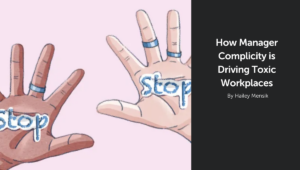SANTA CLARA, CA — Business transformation can feel out of reach and paralyzing for organizations of any size. Leaders may ask themselves “What is the case for making major change?” and come up with too many answers to start doing anything.
But as Mark Gould, Chief Operating Officer at the Federal Reserve Bank of San Francisco, told attendees at this year’s Culture & Leadership Insight Lab, it may help to reframe the challenge.
Instead of asking about the case for change, Gould says, ask: “What is the case for staying the same?”

Research makes it clear that humans generally avoid change. Our brains crave certainty because we like knowing what’s going on. And so anything that threatens our feelings of certitude also feels like a threat to our security.
Gould’s question makes sense because it does a bit of clever psychological footwork to sidestep that threat response. It forces us to question our status quo instead of forcing us to confront the unknown. We must recommit to the familiar, rather than embrace the foreign. As a result, a honest interrogation should leave some things intact and others up for debate.
Leaders can go the extra mile to help people (and themselves) do that honest introspection by building a growth mindset. Rather than view change as a source of pain and potential failure, people will be more likely to see it as an opportunity. Staying transparent can also help build a sense of certainty during tumultuous times.
To be sure, transformation won’t necessarily be a source of comfort. But with a bit of leaning in toward the science of growth and change — and a clever reframing of a key question — teams can dramatically improve the chances of changing taking place.






